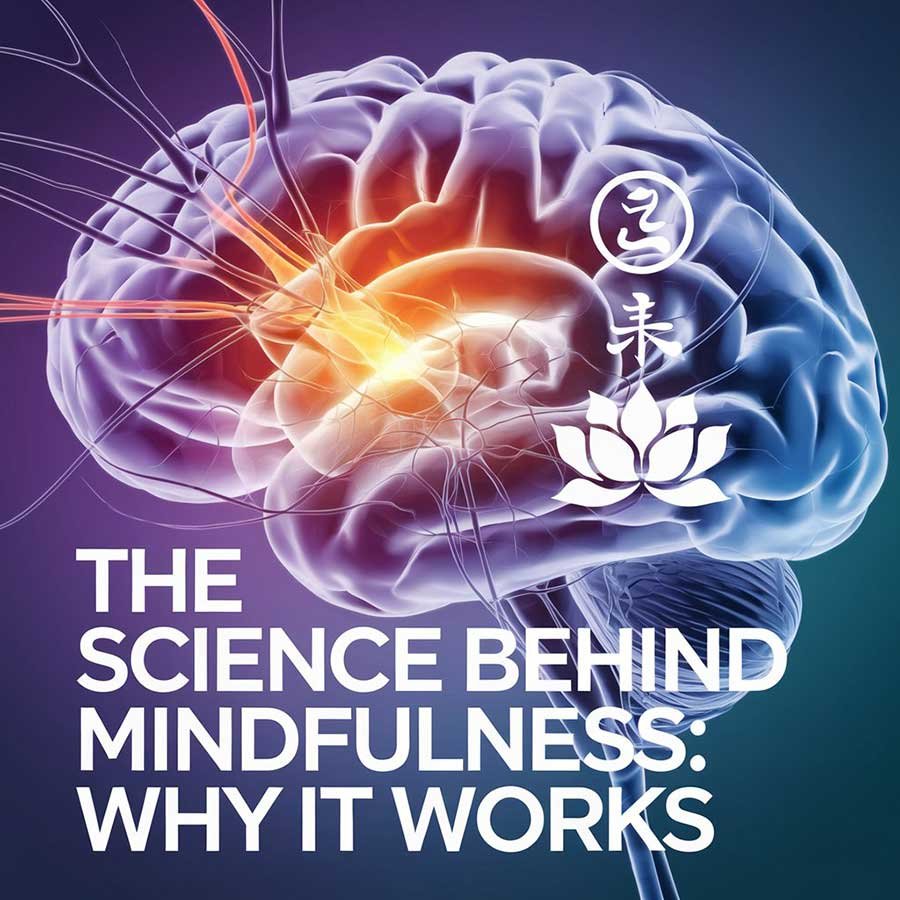
The Science Behind Mindfulness: Why It Works
Understanding Mindfulness
Mindfulness is the practice of bringing full attention to the present moment without judgment. While it may seem like a simple concept, scientific research has shown that mindfulness has profound effects on the brain, body, and overall well-being. From reducing stress to improving cognitive function, the science behind mindfulness explains why this practice is so effective.
How Mindfulness Affects the Brain
1. Changes in Brain Structure
Studies using MRI scans have found that mindfulness meditation can physically alter the brain:
- Increases gray matter density in the hippocampus, improving learning and memory.
- Reduces the size of the amygdala, the brain’s fear center, lowering stress and anxiety.
- Strengthens the prefrontal cortex, responsible for focus, decision-making, and emotional regulation.
2. Reduces Stress and Anxiety
Mindfulness helps regulate the production of cortisol, the stress hormone. Research shows that mindfulness practitioners experience:
- Lower cortisol levels.
- Reduced symptoms of anxiety and depression.
- Improved resilience to stressful situations.
3. Enhances Emotional Regulation
Practicing mindfulness strengthens connections between the amygdala and the prefrontal cortex, helping individuals respond to emotions with greater balance and control rather than react impulsively.
The Science of Mindfulness and the Body
1. Boosts Immune Function
Mindfulness has been shown to:
- Increase antibody production, improving immune response.
- Reduce inflammation, which is linked to many chronic illnesses.
2. Improves Heart Health
Mindfulness-based stress reduction (MBSR) has been linked to:
- Lower blood pressure.
- Improved heart rate variability (HRV), which is an indicator of cardiovascular health.
- Decreased risk of heart disease.
3. Enhances Pain Management
Research indicates that mindfulness can:
- Reduce the perception of pain by altering how the brain processes pain signals.
- Increase activity in brain areas associated with emotional control, helping individuals cope with chronic pain.
Cognitive Benefits of Mindfulness
1. Improves Focus and Attention
Studies have found that mindfulness practitioners experience:
- Enhanced attention span and cognitive flexibility.
- Increased ability to concentrate on tasks without distraction.
- Faster information processing speeds.
2. Supports Neuroplasticity
Mindfulness promotes neuroplasticity—the brain’s ability to adapt and form new neural connections. This enhances learning and memory, making it easier to develop new skills and habits.
3. Delays Cognitive Decline
Research suggests that mindfulness can slow age-related cognitive decline and reduce the risk of neurodegenerative diseases like Alzheimer’s by preserving brain volume.
The Psychological Impact of Mindfulness
1. Promotes Emotional Resilience
By increasing self-awareness, mindfulness helps individuals:
- Develop healthier responses to stress.
- Reduce negative thought patterns.
- Cultivate a more positive outlook on life.
2. Strengthens Relationships
Mindfulness improves relationships by enhancing:
- Active listening skills.
- Empathy and compassion.
- Emotional intelligence, leading to healthier interpersonal connections.
3. Encourages Self-Compassion
Practicing mindfulness fosters self-acceptance and reduces self-criticism, leading to greater overall life satisfaction and well-being.
How to Incorporate Mindfulness into Daily Life
1. Start with Breathing Exercises
Deep, intentional breathing is one of the simplest ways to practice mindfulness and bring immediate relaxation.
2. Engage in Mindful Meditation
Even a few minutes of meditation per day can lead to significant benefits in brain function and emotional regulation.
3. Practice Gratitude
Writing down things you are grateful for can rewire the brain to focus on positive experiences.
4. Be Present in Daily Activities
Whether eating, walking, or having a conversation, bringing full attention to the moment enhances mindfulness in everyday life.
Picture This
Imagine waking up each day with a sense of calm and clarity. Stress no longer controls your life, and you feel emotionally balanced and mentally sharp. Through mindfulness, you develop greater self-awareness, improved focus, and a deep appreciation for the present moment. Science supports what mindfulness practitioners have known for centuries—mindfulness works, and it can transform your life.
Share This with Someone Who Needs It
If this guide helped you understand the science behind mindfulness, share it with a friend or colleague who might benefit. Let’s spread awareness of the power of mindfulness!






